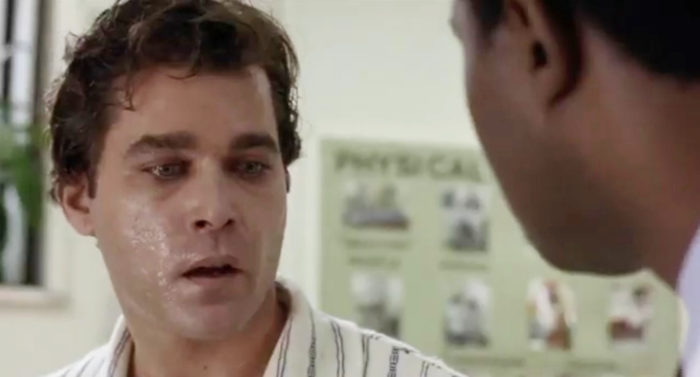Martin Scorcese on our relationship with pollution
This post is part 2 in a series including
- Part 1: What you’ll get more of when you stop polluting: what you love most
- Part 3: Why sustainability is so hard and polluting so easy, from the moving Trainspotting
- Part 4: Why sustainability is so hard for you and polluting so easy, from the movie Requiem For a Dream
Do you remember the helicopter scene in Goodfellas? Henry Hill has a busy day delivering lots of things including guns, cocaine, and food. He has to do family things, meet his mistress, cook dinner, and all sorts of other things.
He’s getting everything done, taking cocaine for energy. If you ask him, he’d say he was being super productive. Only he’s not doing anything meaningful. It’s all superficial. Any actual interactions become just transactions.
When he picks up a relative from the doctor’s office, a doctor sees him and suggests being looked at. The doctor probably doesn’t suspect he’s full of cocaine. He wouldn’t have seen Hill wiping his nose as he entered the doctor’s office. But the look on Hill’s face on the outside belies the confidence he as a narrator shows for getting everything done:

He’s a wreck! He feels like he’s getting things done, sustained by the feelings his choice of addiction gives, and he is, but enjoying nothing, creating nothing, and sputtering his life away.
That’s us in our culture of flying, SUVs, disposable everything, doof, fast fashion, and so on. We feel productive, but what are we doing of value? Growing the GDP? Creating AI to tell stories instead of just telling stories?
We know something is bothering us, like the helicopter, but we’re not sure if it’s us or it’s real.
Here’s the helicopter scene, broken into two parts online. Notice how Scorcese captures the emotion of our time thirty years ahead of today. One big difference: when Hill ends up living as a square in witness protection, his life is worse. For us, “sacrificing” all the power and speed of our productive, GDP-growing lifestyle, returning to connecting to people and nature, improves our lives.
Read my weekly newsletter

On initiative, leadership, the environment, and burpees
Pingback: Why sustainability is so hard and polluting so easy, from the moving Trainspotting » Joshua Spodek
Pingback: What Addiction to Polluting and Depleting Behavior Means » Joshua Spodek